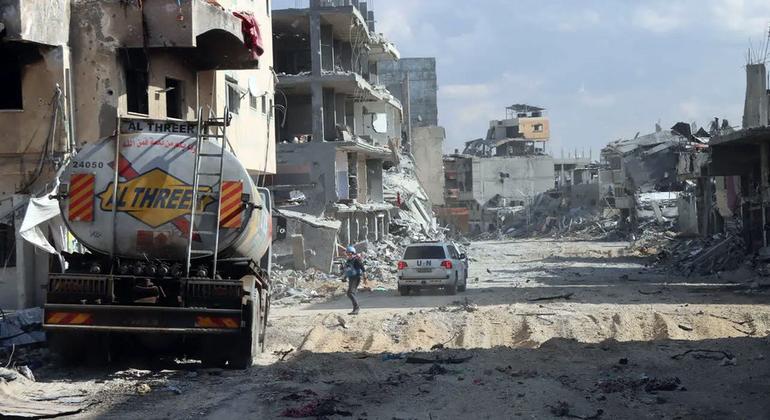The UN Humanitarian Country Team in Palestine condemned the denial of access to people in need and the attack on aid convoys, following a mission to evacuate 24 patients from Al Amal Hospital in Khan Younis. This incident occurred amidst intense fighting in Gaza, sparked by terror attacks led by Hamas in Israel. Negotiations between Israeli authorities and Hamas for the release of hostages and Palestinian prisoners have been ongoing, with nearly 30,000 Gazans killed, the majority being women and children.
During the evacuation mission, it was noted that several patients required surgical intervention that could not be provided at Al Amal Hospital. Thirty-one non-critical patients were left behind as the UN-led convoy evacuated 24 patients, including a pregnant woman, a mother, and a newborn. The hospital, which has been the target of military operations for over a month, has sustained numerous attacks, leaving health workers fearful to leave the compound.
In Gaza, only 12 out of 36 hospitals are partially functioning, with 23 hospitals not functioning at all. Additional emergency medical teams have been deployed in the south of Gaza, with field hospitals offering a combined capacity of 305 beds. The WHO spokesperson stressed the importance of getting the Gaza health system back on its feet and enabling healthcare workers, who are ready and willing to work, to provide much-needed assistance.
The Israeli authorities were informed of the evacuation mission, but the ambulances were detained for seven hours without any communication or information provided. Paramedics were forced to undress, with two still not freed. The lack of cooperation and communication from the Israeli military hindered the humanitarian efforts to provide essential medical care to those in need.
The UN and its partners have been working tirelessly to provide assistance in Gaza, despite facing obstacles such as attacks on hospitals and denial of access to patients in need. The international community has called for a ceasefire to end the violence and allow for the safe passage of humanitarian aid. It is crucial for all parties involved to prioritize the well-being of civilians and ensure access to essential healthcare services in the midst of the ongoing conflict in Gaza.









